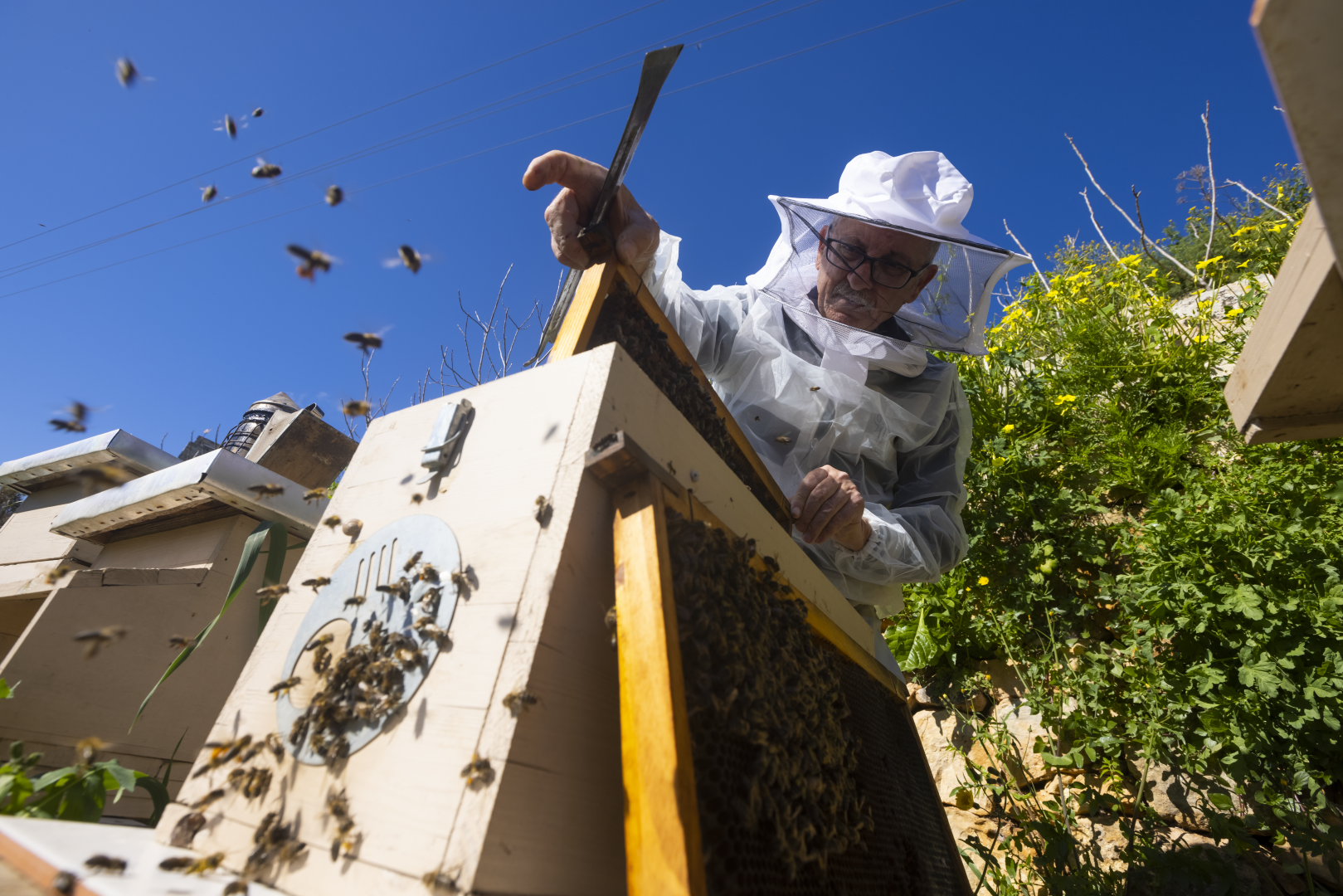We meet Mario, a beekeeper, at his Għargħur fields. As he cranks open the gate, he exclaims, ‘I’m at the mercy of the weather, today is not a good day for the bees.’
The strong winds, cool temperature, and cloudy skies force the bees to seek shelter in their hives. Much like them, Mario and I retreat to a room found on his property. He explains, ‘This was a watch tower which dates back to the time of the Knights.’
Today, Mario uses this room to store his beekeeping equipment. He tells me, ‘I’m a 4th generation beekeeper, there was my great-grandfather, my grandfather, my father and now me.’
Until very recently, his late father used a beehive known in Maltese as il-Qolla. The earthenware jar was the primary beekeeping method in Malta for millennia, eventually falling into disuse during the 20th century. While Mario carries on the tradition and still keeps bees in the ancient hive, he was the first in his family to experiment with more modern beekeeping practices.
The fields tell the story of the generations who came before. Mature trees are dotted around the property, carefully selected to flower at different seasons. A Loquat tree, an almond tree and rows of grape vines – to name a few. The wild flowers are left untamed, creating a haven for bees.
‘I started here, you could say, from the moment I could walk.’ He accompanied his father and grandfather as a young child, and never quite left. He was encouraged to take a more practical route by his father, entering into a career in banking. Mario says that throughout his career, ‘I had around 20-30 hives, but once I retired, I returned here full-time.’ Today he manages 100 hives, all of which contain the Maltese honeybee Apis mellifera ruttneri, a species uniquely adapted to our climate.
For Mario it is his inherent fascination with bees which kept drawing him back. He says that although he has managed his own hives for the past 50 years, he learns something new every day. It is the challenge, and the constant learning curve, which motivates him to continue.
Mario also appreciates the most important function bees offer to our natural world – pollination. He explains, ‘Close to 80% of what we eat is pollinated by bees’, and without them we would not survive.
Our conversation turns to the funding opportunities available for beekeepers, which according to Mario are difficult to access. He says, ‘we get a negligible amount’. He is attuned to the fact that many of the policies and funds available for the agricultural industry have been drawn up as one size fits all.
He offers an analogy, ‘it’s like when you go clothes shopping. The shop stocks clothes of different sizes, to suit each customer.’ Requirements which may work in mainland Europe, do not translate well to Maltese farmers or beekeepers.
Attempts to communicate this to elected officials have fallen on deaf ears. His frustration stems from the false promises that action will be taken, his request is simple – ‘please listen to our suggestions.’
Our conversation was marked by Mario’s strong tie to his familial roots in beekeeping, which he is now passing on to his grandchildren in hopes that the tradition will be kept alive.
